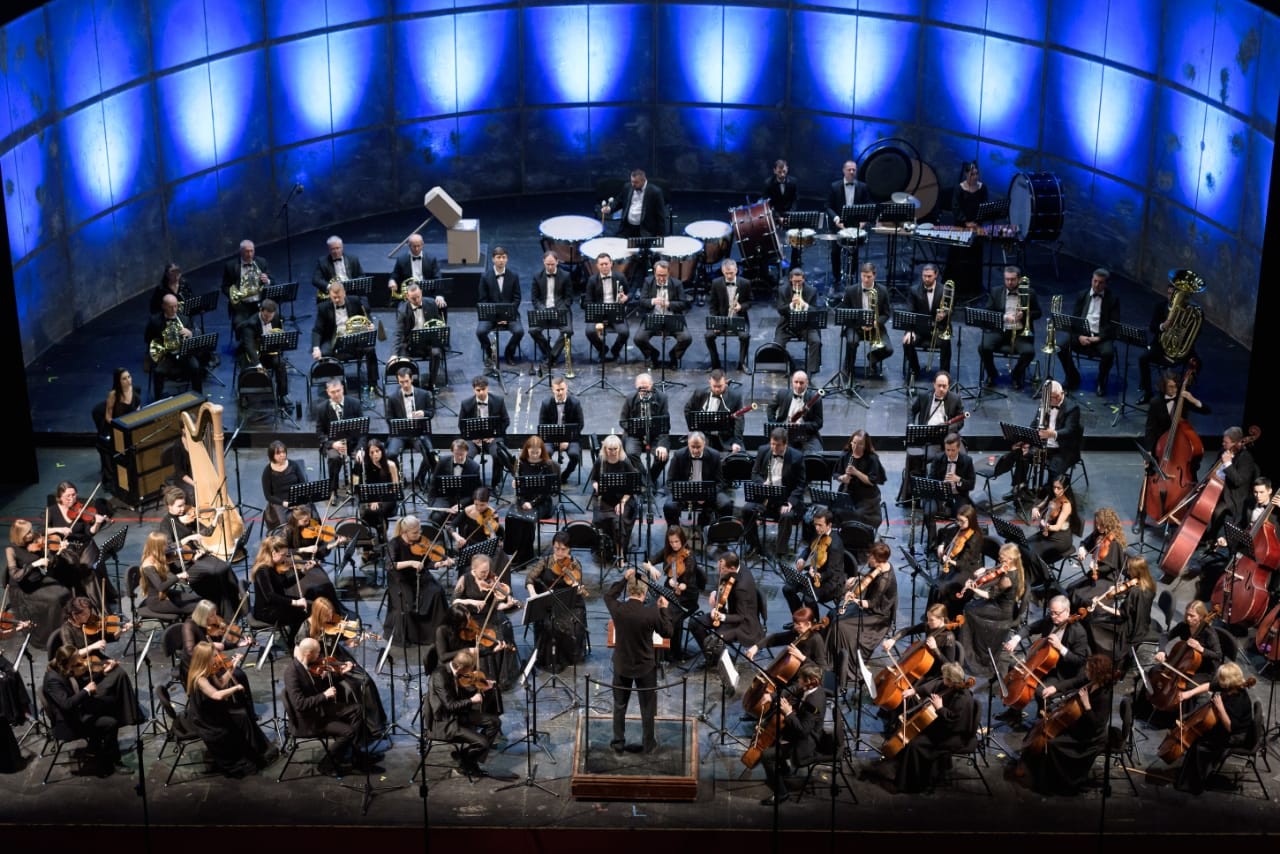
On Sunday evening, in the Great Hall of the theater, Symphony No.6 by Gustav Mahler was performed. The whole essence of the symphony can fit into the quote from the novel Jean Christoph by Romain Rolland, “I wrote the tragedy of the generation that will soon disappear. I didn’t try to conceal anything of its vices or virtues, of its heavy sadness, its chaotic pride, its heroic efforts, its mortal fatigue under the heavy burden of a superhuman task: I depicted the “sum” of the world – the morality, aesthetics, faith, humanity, that must be changed. - That's what we have been. Now it’s your turn, people of our time, the youth. Go ahead, stepping on our bodies as if they were a ladder. Be greater than us and happier.”
In the post-war years of the last century, Mahler was seldom performed in Europe as well; he was performed again only in the sixties. As far as we know, in Russia, Symphony No.6, unlike the other symphonies of Mahler, was not performed even in the pre-war years, when there was a real cult of Mahler in Leningrad, inspired by the musicologist Ivan Sollertinsky.
Valery Voronin, as a graduate of the Leningrad conducting school, admires the Austrian composer as well, “Mahler is a genius of geniuses, he is a unique person. There are composers like Liszt, Chopin, Schumann, but there is no one who could be compared to Mahler. His music is not pessimistic to me. It may be tragic, full of despair, searching and not always finding a way out - yes. But it isn’t pessimistic.”
The symphonic orchestra of the Astrakhan Opera and Ballet Theater under the baton of Valery Voronin has managed to find the right colors to convey all the tragedy, struggle, depression, and to create a rather different form than that of the romantic composers. And still pessimism was felt, however it was skillfully expressed. The orchestra does not shout about the character's tragedy, but synthesizes pieces of joy and optimism with grief, disconsolation and despair.
The vocal cycle “Seven Early Songs” was orchestrated by Berg at the request of the Danish conductor Paul von Klenau. This cycle was referred to by many famous singers and symphonic orchestras. In this composition, the symphonic orchestra of the theater under the baton of Valery Voronin sounded colorful, showing rhythmic precision, and not only supported the soloist, but also became her full partner. Elena Razgulyaeva acted as the “mistress” of the situation, however it was obvious that she relied on her partner in everything and felt it. There were no first and second roles in the duet of the soloist and the orchestra - there were two bright and absolutely equal musicians.
The most long-awaited, unusual and vivid premiere of the theatrical spring was on the Big...
The first May festival of Baroque music will be held in Astrakhan from 20 May...
On March 28, 2024, the exhibition “The First Russian Opera” opened at the Russian House...